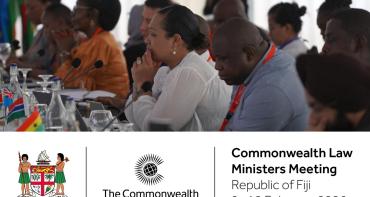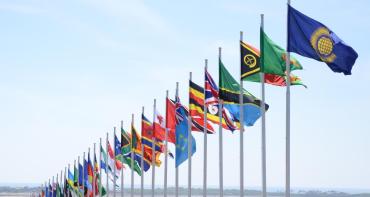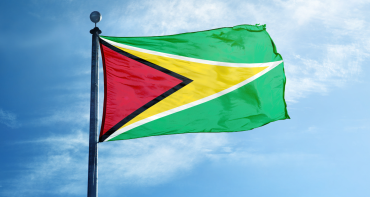Kamalesh Sharma at the High-Level Segment of the Human Rights Council's 22nd session in Geneva
Mr President, Madame Pillay, Members of the Council,
Ministers, Permanent Representatives, Ladies and Gentlemen,
I am honoured to address the Human Rights Council’s 22nd Session on behalf of the Commonwealth. We offer our congratulations to you, Mr President, and to members of your Bureau, on your election.
This is a welcome opportunity to speak of some of the specific human rights concerns of the Commonwealth, and to refer to practical aspects of our work aimed at strengthening human rights protection and promotion.
I draw attention once again to the Affirmation of Commonwealth Values and Principles, adopted by Commonwealth Heads of Government in 2009, by which they signalled their commitment to human rights “...for all without discrimination on any grounds”. In 2011, our Commonwealth Heads of Government raised the level of expectations they have of themselves in deed and word. Practically, they authorised the Commonwealth Ministerial Action Group to become more proactively and positively engaged in situations where there are persistent or serious violations of core Commonwealth political values, including human rights. The collective engagement by the contemporary Commonwealth now builds on our shared values, principles and goals as set out in a new Charter of the Commonwealth, adopted on 14 December 2012 by our Heads of Government.
I am pleased that during our next four year strategic cycle, one of the objectives for the Commonwealth Secretariat will be the deepening of our strategic partnership with the Office of the High Commissioner for Human Rights. It is also our intention to strengthen our contribution to the work of this Council and the treaty body system. We recently contributed to two reports that will be presented to the Council by Madame Pillay during the current session. One is in regard to the policing of peaceful protest. The other concerns action to support efforts by states aimed at strengthening judicial systems and the administration of justice. We are currently finalising further contributions in regard to the right to development, and on the protection of journalists.
Mr President, this Council has agreed that human rights should form an integral part of the post-2015 global development agenda, in particular the right to education. The Commonwealth also attaches great importance to education within that context, and our members are harmonising collective Commonwealth contributions to the post-MDG development dialogue. For instance a Commonwealth Ministerial Working Group on the Post-2015 Development Framework for Education met in December last year, to formulate recommendations from Commonwealth governments, and civil society. These were for presentation to the UN Secretary-General’s High-level Panel of Eminent Persons on the Post-2015 Development Agenda, and to UNESCO for the Post-Education for All goals.
Mr President, I now turn to some of the issues which are central to our human rights programme:
· With regard to this Council’s Universal Periodic Review mechanism, we work to strengthen the capacities of national governments, national human rights institutions, parliaments and civil society to engage constructively with the UPR process. Our focus over the next four years will be on providing technical assistance to states so that they can implement accepted UPR recommendations in ways that are sustainable and effective. We are already helping to develop national human rights action plans, to establish and strengthen national human rights institutions in compliance with the Paris Principles, and to integrate human rights education in schools. Our next UPR regional capacity development seminar, which will be for the Asia-Pacific region, is scheduled for April in Australia and will bring together representatives from governments, parliaments, civil society and national human rights institutions. A regional seminar on the UPR for parliamentarians from Commonwealth countries in the Caribbean will be held in Trinidad and Tobago next week. The Office of the High Commissioner for Human Rights continues to be an expert resource partner in all of our UPR capacity building seminars.
· Our work with national human rights institutions aims to strengthen those institutions that are not yet fully compliant with the Paris Principles. During 2012, two further Commonwealth member states established national human rights institutions, and we are currently supporting two other member states with the establishment of independent institutions. Our work has been given added impetus by the political direction of Commonwealth Heads of Government, who have encouraged Commonwealth member states to establish Paris Principle compliant institutions.
· Mr President, raising standards of conduct by law enforcement agencies and the protection of human rights defenders will continue to be areas of focus, with special attention paid to the very serious issues of extrajudicial, summary or arbitrary executions; of police accountability; infringements on the rights to freedom of opinion and expression; or undue curtailment of the rights to freedom of peaceful assembly and association.
· A Commonwealth expert round-table on reconciliation will take place in London in May 2013. It will involve the sharing of experiences of the challenges faced and lessons learned during post-conflict reconciliation in Commonwealth member states.
· With regard to sexual orientation and gender identity our position remains that, based on shared Commonwealth principles, we oppose discrimination or stigmatisation on any grounds. While it is not realistic to expect the pace of progress towards implementation to be uniform across our 54 member states, we continue to encourage constructive national debate in legislatures, and the examination of legal remedies, and to work with national human rights institutions. Work alongside member states on the Universal Periodic Review offers scope for criminal codes to be brought into conformity with Commonwealth commitments and international human rights law supporting the principles of equality and non-discrimination.
· Our Small States Office here in Geneva, which opened in 2011, is increasingly being used by our member states, especially those of our small states participating in Universal Periodic Reviews. We encourage our small state members to take advantage of this facility in order to engage with the Council, the human rights treaty bodies, and other human rights mechanisms. I am pleased that, from next month, two human rights experts will be located in the office as a specialist resource for our member states. A major part of their remit will be to support our small states in building capacity and in bringing their unique perspectives and challenges to the human rights discourse here.
Mr President, these are just a few of our initiatives. Our hallmark, part of our defining global contribution, is to help with practical action, to work inclusively, and to seek advances in a climate of respect and trust with our member states. We believe in avoiding duplication of efforts, and strive to make an impact in those human rights areas where the Commonwealth has organisational strengths. Our aim is that strengthened rights protection and promotion becomes a reality, of which Commonwealth citizens are aware and feel assured, as they go about their daily lives.
We value this opportunity to address the Council.



